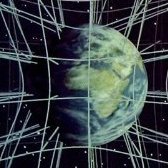Leaderboard
Popular Content
Showing content with the highest reputation on 09/10/21 in all areas
-
I love those questions and I don't think they are hard to answer (when you are as thick as me it is easier ) The first man or lady might have been escaping a wild beast of some description and instinctively appreciated the protection it gave. This appreciation may have been reinforced by repetition. So he was a proto scientist(statistician?) But trying to rationalize it in his free time he may have waxed philosophical (esp if he was trying to impress the lady)2 points
-
Yes, the many worlds interpretation is an attempt to give QM a realist account. Can we ever prove it? I don't see how. The fact remains, however, he is trying to describe unobservable reality. "Are we to infer that there are an infinite number of realities which grow in number with every interaction capable of multiple outcomes ?" That's what the man is saying. Do I believe it? No. Is he trying to describe reality? Yes. Edit: MigL, try "Quantum Theory and the Flight from Realism" by Christopher Norris, if you're interested in these things. You'll love it!2 points
-
They follow paths in space-time, not just space. That’s a crucial difference. When in free fall, they will follow precisely that path which maximises proper time; so they tend to follow the longest possible path through space-time (‘geodesic’), which is also that path for which acceleration vanishes everywhere (hence free fall). This is called the principle of extremal ageing. Writing this mathematically gives an equation the solution to which is precisely the path followed by the falling body. Very simply put, the mathematical description for simple cases like the Earth (but not in more complicated cases!) ultimately depends on just two terms - one for time, and one for the radial coordinate. The former carries an additional factor of c^2, so it is much larger than any spatial effects. In that sense, time is the crucial thing here. Note that this is not necessarily true in more complicated spacetimes - just for some simple cases.2 points
-
You seem to quote a lot of people. Philosophers you obviously admire, and whose thinking you respect. You also tend to put groups of people into different camps, like ( anti ) realists, ( contra ) idealists, etc. I was wondering, do you you ever post what YOU think about these subjects ? A scientist ( Physicist, as I like to pretend I am ), when asked will give you their opinion. Sometimes those opinions even differ, or are totally opposite, other scientists. But I assume you're human, just like the rest of us; surely you must have your own opinion without appealing to the authority of your (philosophical ) masters ? Tell us what YOU think that cannonball 'really' and 'truly' is ... edit And welcome back I thought you might have gotten upset and left us.2 points
-
Statement 1 (S1): Birds don't fly Statement 2 (S2): Frank Sinatra is not a poached egg Both these statements share one thing in common: they are both screamingly obvious; the difference being that S1 is obviously false (it is true that some birds don't fly, of course, but "[all] birds don't fly" is false) while S2 is obviously true. Now, if the village idiot, or the village madman for that matter, were to tell you either of the statements above, you might smile politely, make some excuse about a dental appointment, and disappear fast. On the other hand, however, were S1 or S2 advanced by the village genius, one might stop to wonder "Why is an intelligent person saying something that is so obviously false/true?" This is the position I find myself in. During my brief time here, I have been told by various scientists (mainly physicists)--obviously intelligent and knowledgeable--that: S3: Science (or physics) does not, or does not try to, describe reality S4: The model is not the reality As with S1 and S2, S3 is screamingly obviously false while S4 is screamingly obviously true, and yours truly is left wondering why these things are being said at all. Here's what I think is going on, and I offer the following in the hope of attaining a little more clarity for us all in these discussions. Now, whether you've read Immanuel Kant or not (I haven't), it's likely that we've all been influenced by his thought to some degree or other. Great ideas, whether right or wrong, tend to trickle down from the heights of the ivory tower to the grass roots far below. Kant, in his attempt to refute the skepticism (roughly, "Sorry! We can't know anything") that traditional empiricism (Locke, Berkeley, Hume, et al) implies, offers us a bifurcation of reality into two realms: the phenomenal and the noumenal. The former is the realm of appearances; accessible to us, and of which we can have knowledge. The latter, though real, is utterly inaccessible to us; we can have no knowledge of the noumenon. The noumenal realm, we are told, is where the dreaded ding an sich--the "thing in itself"--resides (cf. the fundamental nature of gravity, the essence of dark matter, dark energy, etc). Kant's philosophy might be described as realism, though it's a realism of the most watery-thin kind; an Oliver Twist gruel realism. At this point, one might pause and wonder "If we can know nothing about this supposed noumenal realm, Mr Kant, why bother with it at all? Why not just get rid of it?" Indeed, this was the path followed by subsequent thinkers, the idealists, and their close cousins, the phenomenalists. To these guys, appearances are all that exist. Idealism, though enormously influential for a century or more, is now pretty much dead (Thank God!). What we might call commonsense realism once more holds sway. Yes, folks, that tree over there is real, really real, and it continues to exist even when no one is looking. And what does all this have to do with science, you might well ask. What about S3 and S4? We see something very similar to Kant's phenomenal-noumenal distinction in the scientific realism vs scientific antirealism scuffle. You may or may not be familiar with the terms, though you've almost certainly been influenced by the ideas. The difference, however, is that the distinction drawn, in the latter case, is usually framed as being between observable reality and unobservable reality. Contra idealism, both sides agree that there exists an observable reality (not just appearances) and we can know things about it. Indeed, science (including physics, of course) is in the business of telling us about it, describing it for us, generating knowledge for us (contra S3). Where they parts ways is that a scientific realist will insist there also exists a mind-independent unobservable reality, moreover, we can, if not now at least in principle, know things about it. A sensible realist claim would be cautiously hedged, of course, after all, many scientific theories once thought true now lie on the scrapheap. Perhaps something like "Our best, most highly confirmed theories, in the mature sciences, are providing us with knowledge of unobservable reality". The antirealist, meanwhile, depending who you ask, might tell you there is no unobservable reality (cf. "There is no quantum world" - Niels Bohr), or perhaps that it might exist but we can say nothing about it, or to ask such questions is meaningless, such questions are ill-defined, etc., etc. As far as I'm able to discern--from reading, from internet resources, from discussions with working scientists in places like this-- antirealism is (far and away?) the predominant position in contemporary physics (though not other scientific disciplines), thanks to the overwhelming influence of Bohr, Heisenberg, Copenhagen et al. I get the impression, though I have no personal experience in these things, that physicists--tacitly--are being educated (dare I say indoctrinated) to believe that this, i.e., antirealism, is the only way to construe such matters. Perhaps the physicists and other scientists out there might share their experiences. I'd be fascinated to hear. Let it not be thought, though, that the quietus has been given to scientific realism, even in the crazy, wacky, seemingly incomprehensible domain of quantum mechanics. There are always dissenting voices (Einstein, Weinberg, Bohm, multiple universes, etc.), eager to provide a more satisfying (as they see it) causal-explanatory realist account of what's going on behind the scenes. And these things do have a habit of coming and going in cycles. Scientific antirealism reigns for now, in physics at least . . .1 point
-
At some point it helps if one accepts they are an amateur trying to have an in depth discussion with experts. When that happens, one no longer tries to argue they are right, but instead tries to understand why they are wrong. It's hard to understand how a Ferarri functions when your automotive knowledge is based upon playing with matchbox cars. I'm speaking of myself of course.1 point
-
I sometimes wonder at the level of mystification here. Wasn't science originally called "natural philosophy" and branched off from philosophy, developing methods particular to unraveling the mysteries of nature? I have this odd feeling that the OP question was dealt with eight pages ago, and the thread morphed into: does modern physics range beyond science and into metaphysics and epistemology ? Which goes back to wrestling matches like Neils Bohr and Einstein arguing over the Copenhagen interpretation and quantum realism. There's really no doubt that theoreticians do plenty of philosophy, especially where a wavefunction is concerned.1 point
-
1 point
-
Whether there is a reality or not, or even if it can be described adequately is a philosophical question which I don't have the 'tools' to answer. If you wanna have a go at it, be my guest, but keep in mind that Philosophy and terms it uses ( which you just admitted are different from everyday English ), like knowledge, realist, idealist, true, etc. are based on a belief system ( justified true belief ??? ) an opinion which can be neither proven or disproven, but serves mainly to 'exercise' the mind with mental gymnastics ( see how I tied that in to my post in that other thread, several days ago 🙂 ). As far as Physics is concerned, I explained what our best, most accurate models describe, and it is certainly not reality, nor can you say it is true, or do you really think a cannonball is empty mathematical space, travelling as a dimensionless point ? So, for the 37th time, and in the 3rd thread, and the 9th person to do so, describing reality is not the business of Physics.1 point
-
I have to confess, the individual you knew as Frank Sinatra was actually only a perfectly lifelike animatronic. The real Frank Sinatra I keep in the freezer. It is a poached egg afterall. Gifted singer, but not one for the heat.1 point
-
It was Hawking's dream. From my point of view, the main formula of physics is not E=mc^2, but1 point
-
Promised. But it'll take some time until I sort my ideas. The yolk was too tempting.1 point
-
1 point
-
This morning I've had Kant for breakfast. It was noumenal! Brilliant.1 point
-
1) Please point me to a correct reference to the term "screamingly obvious" in Philosophy. Or even just 'obviously'. 2) Why is S2 obviously true ? This morning, when I had my poached egg for breakfast I named it Frank Sinatra. Just as yesterday I named my egg Shirley Bassy and will probably name tomorrow's egg Annie Lennox. Considering the length of your opening post, I would be very interested in your response to this recent post from another of our general philosopher members. A well thought out and rounded response. +11 point
-
+1 Just a note of additional explanation to add here. In many (if not most) presentations of relativity/gravitation (particularly Physics ones) it is stated that a geodesic is the shortest line. This is actually only half the story because a geodesic is a line of extremal values. And extremal values may be maximum or minimum (as Markus has here). Applied Mathematicians have therefore started to use the term extremal or state both maximum and minimum. This is further complicated in that the standard calculus technique to indentify such points and lines also identifies 'points of inflection' which are neither a maximum or a minimum.1 point
-
OT. If you want to discuss Homo Teanderthalis...take it to the biology forum...😜1 point
-
Ahh… of course. Thanks. I sort of stopped watching Lucy pull the football away from this particular Charlie Brown. First, Trump was to retake office on Inauguration Day, January 20. Then that came and went and he was to retake office on March 4. Then that came and went and he was to retake office on August 13. Now that’s come and gone so the date has slipped to September 13. PT Barnum was right. There’s a sucker born every minute.1 point
-
I'm pretty sure he meant September 18th. https://www.rollingstone.com/politics/politics-news/justice-for-j6-rally-capitol-violence-1222120/1 point
-
No, assertions carry baggage. A center, or an edge, implies homogeneity and isotropy fly out the window; and we lose two sides of the foundation of the Big Bang Theory. They also imply a preferred frame, something which is not allowed by GR. With GR no longer valid, we lose the third foundation of the Big Bang Theory. We are left with a pretty wobbly structure. Just because we don't know what something is, does not mean we don't know what it can't be. That is the essence of science ( to wax Philosophical ), falsify what cannot be, and keep narrowing down the options of what it can be.1 point
-
It seems you and I don't use the same definition of intelligence... Chance, chaos, they don't exist? I really am unsure why or how you get these ideas. I don't think these ideas hold up to scrutiniy, but I also realise that this is the extent to which you answer, so it might not be a very fruitful discussion. Things like 'be absurd' are... well your opinion. You like to state the way things are, but don't provide evidence or even follow sound logic that makes sure there are no other possibilities. It might be a good idea to focus on explaining your concepts in more steps, explain why things are like this and not in other ways. Thus far you did not seem to answer my question, or those of other people. I asked "Why does intelligence have to have always existed, what evidence is there for this. What evidence can you provide that goes agains the claim 'intelligence has not always existed' or 'there was no intelligence on Earth before life'. " One can only find several extra statements from which to understand that your definition of intelligence is different from that of other peoples. It might be good to give a proper definition of the words you use. Are they different from what some dictionaries propose, if so, you should note this down so we can understand.1 point
-
I got a major award today (plaque, not a sexy leg-lamp) for my "staunch defense of USNO's interests" in a project I'm working on1 point
-
Does the metric reflect the Mach principle? The fact that the gravitational potential of the Universe is the sum of the gravitational potentials of all particles in the universe is essentially a mathematical formulation of the Mach principle.-1 points













